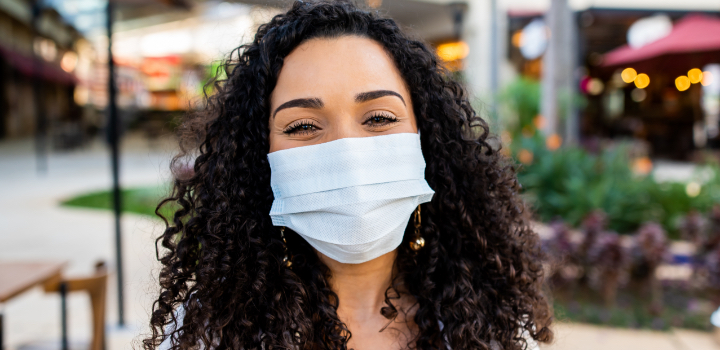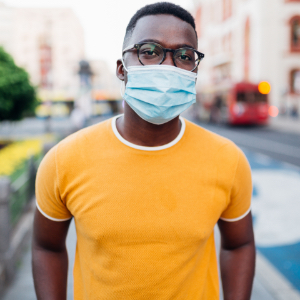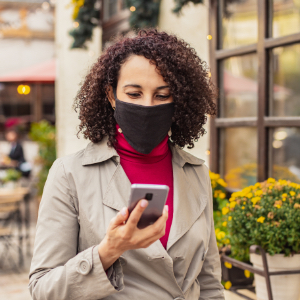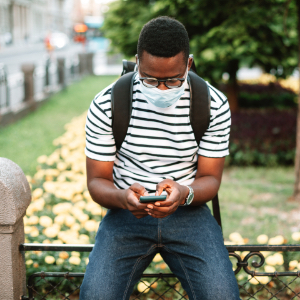Dispelling vaccine myths with the experts

With myths, misconceptions and vaccine hesitancy still prevalent in South Africa, we speak to the experts and look beyond our borders at global vaccine successes. Let science do the talking to dispel the myths and help put your mind at ease.
You could say we've been lucky, if the word "luck" can be used anywhere alongside COVID-19. When the virus arrived on our shores, people in the northern hemisphere were already fighting the pandemic on all fronts and we were able to piggyback on whatever knowledge they slowly gained.
We can say the same about the second phase of South Africa's vaccination rollout. It's happening at a time when more and more data and research on global vaccination programme successes are continually emerging. This not only gives us some much needed hope, but should also help to dismiss any concerns, distrust and fear.
Why the hesitancy?
According to the SA COVID-19 and Vaccine Social Listening Report 2 of 24 May 2021, research suggests around 70% of the population now agree to be vaccinated. The main reasons for vaccine uncertainty include various kinds of distrust (27%), vaccine ineffectiveness (19%), conspiracy concerns (10%), side-effects (9%), access or cost issues (9%), and "need more information" (8%).
"Vaccine hesitancy is nothing new", says Lee Baker, the owner of Amayeza Information Centre, an independent medicine information centre. "It's something that we've been dealing with at Amayeza for the past 20 years. Yet vaccines remain one of our safest and most effective medical strategies today, having successfully eradicated smallpox and polio, and consistently helping to fight the flu. They're proving crucial in our battle against COVID-19."
Dr Sheri Fanaroff, a GP in private practice, dismisses some of the most common myths contributing to COVID-19 vaccine hesitancy right now.
- Myth: The COVID-19 vaccines are not effective
Actually, they are. Based on the most recent clinical trial data and real-world data, these vaccines really do work. This means that once you're vaccinated against COVID-19, if you contract the infection, you are significantly less likely to get severely ill, need hospitalisation or die. - Myth: They're going to make me sick
Neither the Johnson & Johnson (J&J) nor the Pfizer-BioNTech vaccine can give you COVID-19 because they don't contain a live SARS-CoV-2 virus. There are, however, mild side effects that can last from one to three days as a result of your body building an immune response to the vaccine. While the J&J vaccine has been (extremely rarely) linked to an uncommon clotting disorder in women, COVID-19 is much more likely to cause blood clots than the vaccine. This is why global health authorities have collectively determined that the benefits of vaccination far outweigh the risks. Other more serious side effects such as severe allergic reactions are also extremely rare. Learn more about the Pfizer-BioNTech vaccine side effects here and learn more about the J&J vaccine side effects here. - Myth: The vaccines aren't safe
On the contrary, the COVID-19 vaccines are safe. Developing these vaccines has been a global scientific collaboration with massive international funding to ensure rapid development while the vaccines still progress through all the trial stages, undergo rigorous safety checks and have ongoing scientific monitoring. And yes, these vaccines were developed with unprecedented speed. However, they are built on processes that were already in place from testing against other viruses in previous years. The vaccine manufacturers strictly adhered to all stages of vaccine trial and testing before they were authorised for use.Read more on Pfizer-BioNTech COVID-19 overview and safety.
Read more on Johnson & Johnson's Janssen COVID-19 overview and safety.
- Myth 4: We're going to have long-term side effects from the vaccine
Historically, vaccines do not cause long-term side effects - they generally clear up within days or weeks. In addition, there's nothing in their ingredients to make doctors concerned about any long-term issues. - Myth 5: I shouldn't bother getting the vaccine if I've already had COVID-19
Several clinical trials have confirmed that the vaccine works better than natural immunity against COVID-19 and variants of concern (for example, the Beta variant which is the predominant variant in South Africa) as they stimulate the production of neutralising antibodies more than natural infection does. Natural immunity has been shown to wane over time and is far less predictable than immunity gained from the vaccine. As a result, reinfections have occurred in some people. In addition, getting a vaccine after you've had COVID-19 will extend your natural immunity, which means it will last for a much longer time.
What's happening elsewhere?
Vaccine successes have seen people in countries such as Israel going back to living increasingly normal lives. In the United Kingdom (UK), limits on gatherings are slowly being eased. It's now a reality to go to the movies, theatre and indoor and outdoor concerts as well as sporting events with COVID 19 protocols in place. The United Kingdom is cautiously moving towards all social contact limits being removed on 19 July 2021.
The American Centers for Disease Control and Prevention (CDC) recently gave fully vaccinated passengers and crew the thumbs up to travel, so the first post-pandemic cruises are due to set sail in the United States of America (USA) in July 2021. This could be our reality too.
A shot at the future
Dr Fanaroff maintains that getting a COVID-19 vaccine - together with wearing masks, sanitising and social distancing - are the keys to helping us to start returning to normal life. " There's no doubt that the COVID-19 vaccines are vital to bringing this pandemic to an end," she says.
Lee agrees. "It's encouraging to see the vaccination programme successes in countries such as Israel, the USA and the UK. Israel's high vaccine coverage has shown very good results in reducing severe disease, hospitalisation and death as well as reducing both symptomatic and asymptomatic disease. This has enabled their citizens to regain some normality in their lives. A similar future is possible for us too," she adds, "despite some concerns about the vaccines' efficacy against the new variants and the third wave that's upon us. However, if we're proactive and collectively work together to make sure that there is sufficient stock of vaccines as well as high vaccination uptake, a normal life - where we're free to travel and live without the fear of hospitalisation, severe disease and death - should be well within our grasp."
USEFUL LINKS
- https://www.ncbi.nlm.nih.gov/pmc/articles/PMC7709178/
- https://www.thelancet.com/journals/lancet/article/PIIS0140-6736(21)01018-7/fulltext
REGISTER NOW
- If you're 60 years or older and haven't done so, register on the Discovery COVID-19 Vaccination Navigator now at https://www.discovery.co.za/corporate/covid-19-vaccine-and-everything-to-know.
Related articles
All medical information found on this website including content, graphics and images, is for education and information objectives only. Discovery publishes content to help to promote a better understand of COVID-19 and COVID-19 vaccinations. The content covered is an overview of key concepts and is not exhaustive in nature. We encourage further reading from other credible sources where necessary.
South African organisations:
- National Department of Health's dedicated COVID-19 portal: https://sacoronavirus.co.za/
- National Institute for Communicable Diseases' (part of the National Health Laboratory Service) dedicated COVID-19 hub
- South African Health Products Regulatory Authority (SAPRHA - part of the National Department of Health).
- South African Medical Research Council (SAMRC)
- South African Medical Journal (SAMJ)
International Organisations:
- Johns Hopkins University
- Harvard Health, Harvard University COVID-19 resource center
- Mayo Clinic COVID-19 resource center
- New England Journal of Medicine (NEMJ)
- US Centers for Disease Control and Prevention (US CDC)
- US Food and Drug Administration (US FDA)
- World Health Organization (WHO)


